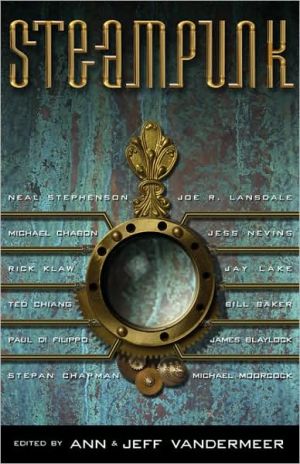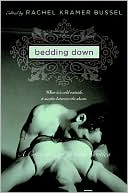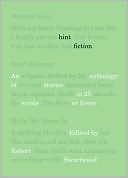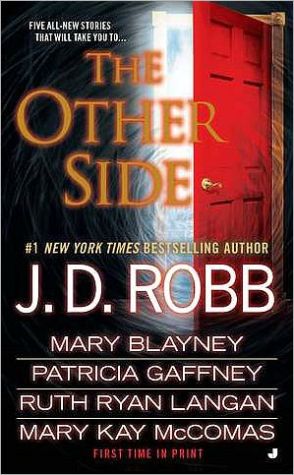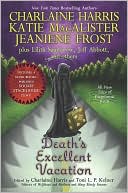Steampunk
Replete with whimsical mechanical wonders and charmingly anachronistic settings, this pioneering anthology gathers a brilliant blend of fantastical stories. Steampunk originates in the romantic elegance of the Victorian era and blends in modern scientific advances—synthesizing imaginative technologies such as steam-driven robots, analog supercomputers, and ultramodern dirigibles. The elegant allure of this popular new genre is represented in this rich collection by...
Search in google:
Replete with whimsical mechanical wonders and charmingly anachronistic settings, this pioneering anthology gathers a brilliant blend of fantastical stories. Steampunk originates in the romantic elegance of the Victorian era and blends in modern scientific advances—synthesizing imaginative technologies such as steam-driven robots, analog supercomputers, and ultramodern dirigibles. The elegant allure of this popular new genre is represented in this rich collection by distinctively talented authors, including Neal Stephenson, Michael Chabon, James Blaylock, Michael Moorcock, and Joe R. Lansdale.Publishers WeeklyThe VanderMeers (The New Weird) have assembled another outstanding theme anthology, this one featuring stories set in alternate Victorian eras. Michael Moorcock, the godfather of steampunk, is represented by an excerpt from his classic novel The Warlord of the Air. In "Lord Kelvin's Machine," a fine tale from prolific steampunk author James P. Blaylock, mad scientists plot to throw the Earth into the path of a passing comet, declaring that "science will save us this time, gentlemen, if it doesn't kill us first." Michael Chabon's vivid and moving "The Martian Agent, a Planetary Romance" recounts the lives of two young brothers in the aftermath of George Custer's mutiny against Queen Victoria, while historical fantasist Mary Gentle describes a classic struggle between safety and progress in "A Sun in the Attic." This is a superb introduction to one of the most popular and inventive subgenres in science fiction. (June)Copyright © Reed Business Information, a division of Reed Elsevier Inc. All rights reserved.
\ Publishers WeeklyThe VanderMeers (The New Weird) have assembled another outstanding theme anthology, this one featuring stories set in alternate Victorian eras. Michael Moorcock, the godfather of steampunk, is represented by an excerpt from his classic novel The Warlord of the Air. In "Lord Kelvin's Machine," a fine tale from prolific steampunk author James P. Blaylock, mad scientists plot to throw the Earth into the path of a passing comet, declaring that "science will save us this time, gentlemen, if it doesn't kill us first." Michael Chabon's vivid and moving "The Martian Agent, a Planetary Romance" recounts the lives of two young brothers in the aftermath of George Custer's mutiny against Queen Victoria, while historical fantasist Mary Gentle describes a classic struggle between safety and progress in "A Sun in the Attic." This is a superb introduction to one of the most popular and inventive subgenres in science fiction. (June)\ Copyright © Reed Business Information, a division of Reed Elsevier Inc. All rights reserved.\ \ \ \ \ Author MagazineRepresent[s] the best tradition of steampunk\ \ \ boingboing.netFrom the inception of Steampunk right up through today . . . a great book . . . I can't put it down.\ \ \ \ \ Book FetishDemonstrate[s] beautifully just how expansive and imaginative this world of ours, the world of steampunk, can be.\ \ \ \ \ BooklistThe VanderMeers, ardent steampunkers themselves, historically sample that fantasy genre, in which the Victorian era is reimagined to include Martian technology, steam-powered robots, airships, alchemy, and various anachronistic technologies.\ \ \ \ \ LocusJeff VanderMeer is one of the most remarkable practitioners of the literary fantastic in America today.\ \ \ \ \ Los Angeles TimesIt is as if a mad scientist had done all his shopping at Victoriana instead of Sharper Image . . . effectively captures what the steampunk genre is all about.\ \ \ \ \ Uncommon PlacesGreat new anthology of all things steampunk\ \ \ \ \ Kirkus ReviewsThe diversity of the sci-fi subgenre is amply demonstrated in this anthology of previously published stories, which are supported by a handful of new essays. The essays are rather dull-mostly just rote lists-and not nearly as informative as just reading the stories, which define a nearly indescribable mode and milieu of storytelling both clearly and broadly. Put simply, steampunk is sci-fi either set in or extrapolated from the Victorian era, the "steam" part of the term referring to the source of technology in the various fictional worlds. But as the stories here demonstrate, even that basic framework is easily stretched, and the writers in this collection do so with creativity and verve. Ranging from big names (Neal Stephenson, Michael Chabon, Michael Moorcock) to small, the contributors bring in elements of alternate history, pulp adventure fiction, high fantasy, cyberpunk and drawing-room farce to their tales. There's a wonderful deadpan humor to Molly Brown's story of a ladies' gardening society discovering how to terraform the moon; James Blaylock's account of a rivalry between gentleman scientists; and Paul Di Filippo's tale of an amphibian Queen Victoria impostor. Some stories do stray a little too far afield: Ian R. MacLeod's impressionistic origin myth for a utopian society and Mary Gentle's fable about the perils of progress are a long way from the dime-novel origins of steampunk described in one of the opening essays, and not really grounded in anything recognizably Victorian. At the same time, Ted Chiang's haunting "Seventy-Two Letters" creates a nearly unrecognizable society based as much in magic as technology, but it still captures something essential about itsVictorian setting. And even when a story's inclusion is questionable, the writing is never less than compelling. Both fans of steampunk and readers for whom it's a foreign concept should find this collection rewarding.\ \
